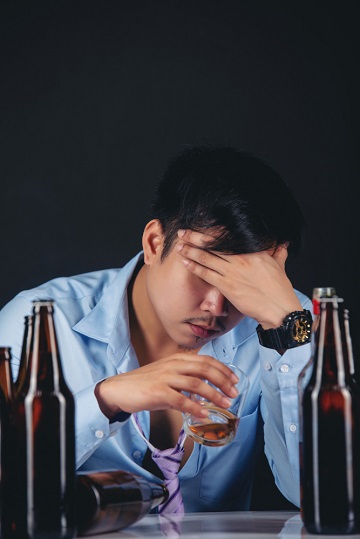In general, we can differentiate three stages in the treatment of addiction:
- Detox
 In this first step, many addicted people must enter the centre. It is about eliminating alcohol or other drugs from the body and achieving physical stability without the body missing the substance. It should always be carried out under the watchful eye of the doctor and psychiatrist since intense discomfort can appear and become dangerous. This way, the detoxification will be carried out safely, and the possible physical withdrawal symptoms will be managed. Doctors will prescribe drugs to avoid withdrawal effects and make this process safer and easier. Sometimes, fluid therapy will be required, given the intolerance to food and the severity of the condition. Intervention Specialisttreatment tries to avoid the appearance of complications. For it,
In this first step, many addicted people must enter the centre. It is about eliminating alcohol or other drugs from the body and achieving physical stability without the body missing the substance. It should always be carried out under the watchful eye of the doctor and psychiatrist since intense discomfort can appear and become dangerous. This way, the detoxification will be carried out safely, and the possible physical withdrawal symptoms will be managed. Doctors will prescribe drugs to avoid withdrawal effects and make this process safer and easier. Sometimes, fluid therapy will be required, given the intolerance to food and the severity of the condition. Intervention Specialisttreatment tries to avoid the appearance of complications. For it,
The evolution that occurs these days of hospital admission is very significant, and the change is radical in a high percentage of patients. The first 48 hours of the hospital phase are crucial. By all means, we must avoid the appearance of the feared withdrawal syndrome and, if it appears, make it as bearable as possible. The patient becomes calmer, begins to see things differently, improves sleep and appetite and, in general, feels much better. Laboratory tests (biochemical, neurobiological and nutritional parameters) and an electrocardiogram are performed to monitor physical condition.
There is currently a general trend to reduce admission times. Pharmacology makes it possible. In our case, hospitalization time ranges from 48 hours to 7 days. Previously, seclusion was the norm and was committed for much longer periods.
However, we must not forget that detoxification is the initial phase of the process, the beginning of the path to a new life. Weaning must begin immediately to ensure definitive abstinence.
- Weaning
Weaning is carried out in patients who are already detoxified; that is, they do not suffer the effects of drug withdrawal. This stage must be done without hospitalization. It is a process in which the person tries not to return to substance use, mainly with psychotherapeutic treatment, to live without consuming, improving their psychosocial functioning and healthy habits. For this, professionals must foster certain personal and social skills to achieve said achievements.
- Reintegration
The change is consolidated in this stage, and future plans and life projects are carried out. Professionals must remember the commitment to a new life, re-living, and always support their needs.
What Are The Types Of Treatments For Addictions And Problematic Substance Use?
The word “treatment” might make most people think of rehab or detox centres. In reality, while especially important for treating excessive alcohol or benzodiazepine use (Xanax, Ativan, or Valium, among others), detoxification is not a treatment, it only focuses on relieving the physical symptoms of withdrawal, and rehab centres are just one of several options.
Substance use disorder treatments are offered in different settings (may require admission or hospitalization or maybe outpatient) and have varying degrees of intensity. In general, a person’s treatment plan is designed to alleviate their physical, psychological, emotional, and social problems and substance use. Treatments also focus on the type of substance used and may include medication for specificsubstance abuse intervention can help treat withdrawal symptoms and urges to use.
Before making any decisions, take the time to understand the types of addiction and problem substance use treatments, so you know what they offer and what options are best for your loved one.
